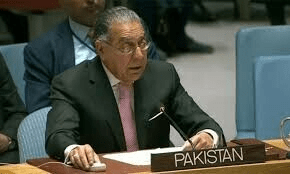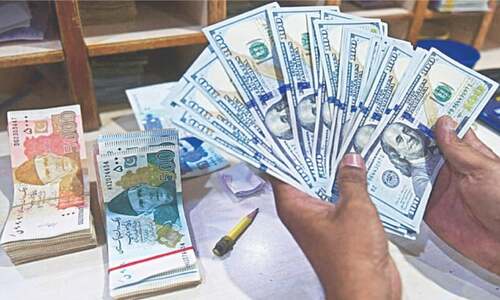BANGKOK: The protest leader, a monk in flowing orange robes, sat sternly at the head of a long hardwood table, his new-found authority in this patch of Bangkok plain for all to see.
Before him, three high-level Thai officials were begging permission to get back to work — in offices across the street his anti-government demonstrators had shut them out of two weeks earlier. Tens of thousands of passport applications were piling up, they said. Bankruptcy declarations needed tending to. One official was desperate to access environmental databases.
Speaking on behalf of the group, Bangkok’s deputy police chief, Maj-Gen Adul Narongsak, pressed his palms together in a traditional sign of respect, and smiled meekly. “We are begging for your mercy,” he said.
The monk, Luang Pu Buddha Issara, pursed his lips and gave a blunt reply: “Lord Buddha once taught that effects only come from causes. And right now, the cause [of the problem] is this government.’’
It was an extraordinarily humbling moment for Prime Minister Yingluck Shinawatra’s embattled administration, which took power following a landslide election two and a half years ago.
But the popular mandate she enjoys today stands in stark contrast to scenes like these, which underscore just how weak Yingluck’s government has become in the wake of Thailand’s biggest anti-government protests in years.
The protesters are a minority that cannot win power through elections, but they comprise a formidable alliance of opposition leaders, royalists, and powerful businessmen who have set their sights on ousting Yingluck’s government, which they accuse of corruption and misrule.
Desperate to defuse the crisis, Yingluck dissolved parliament in December and called new elections, set for Sunday. But protests only intensified, and Yingluck — now a caretaker prime minister with limited powers — has found herself increasingly cornered since.
In the meantime, demonstrators have surrounded government ministries, leaving Yingluck’s government hobbled and in disarray.
With just about every one of country’s ministries forced to work from back-up offices elsewhere, citizens in need of government services have sometimes struggled even to find where they are located. Yingluck herself has been forced to use a back-up office inside a Defense Ministry building.
As the protests drag on, some government officials have quietly been trying to restart some government services, so far, with little success. The immensity of the challenge was evident earlier this week when several Thai officials met at a police station in the northern Bangkok district of Chaengwattana ahead of negotiations with protesters.
‘’We need to explain clearly that this isn’t about politics, it’s about the impact protests are having on the people,” said Adul, the police boss. “We need to make clear we’re not trying to take anything back over. We’re just asking for space for you to work.’’
Half an hour later, the delegation drove into a zone controlled by protesters where government authority had effectively ceased. The line was a wall of white sandbags that had been erected across a multilane road, where a handful of protesters acting as guards, one whom wore a Che Guevara pin on his hat, stood beside a row of steel barriers and a tent with a sign that warned “no photographs’’.
The meeting with the demonstrators took place at a wooden table under a model Thai house on stilts that was being displayed for sale. The monk — who was asked to lead the area’s protesters by the movement’s main chief and has been heavily criticized by other Buddhists for becoming involved in politics — was waiting.
Thongchai Chasawath, director of the Foreign Affairs Ministry’s consular department, explained there was now a backlog of more than 40,000 passport applications. The justice ministry’s deputy permanent secretary spoke next, explaining that bankruptcy declarations, bail bonds and auctions were also being affected. An official with the ministry of natural resources then asked for access to environmental databases.
Maj-Gen Surachat Jitjaeng, a soldier serving in the office of the permanent secretary for defence, which supports Yingluck, told the monk that “all these ministries and departments are like pieces in a jigsaw puzzle. If you can help us put the pieces fit back together, this could be a good start.’’
The monk nodded and said he would meet with the consular and justice officials later to consider their requests. But the closure of the natural resources office was not hurting anybody, he argued. “If you are going to ask for help, why don’t you ask those corrupt politicians who are destroying our forests?’’
By Thursday, the negotiations had produced mixed results. The consular affairs official has so far been unable to negotiate his way back in, but Tawatchai Thaikyo of the justice ministry said he is hoping he can get 100 staff back to work Monday.
Tawatchai said the monk had been “understanding” and had asked him to provide photo identification for civil servants who could be allowed to return. But there was a condition.
Tawatchai had to sleep in the street alongside the protesters, which he did, in a pink tent, on Wednesday night.
‘’My family doesn’t approve ... they are concerned about my safety,” he said, referring to several grenade attacks on protest sites this month. “But I told them I’m a civil servant and I have to serve the people ... if I have to quit my job to let us go back to work, I’d do it.’’—AP












































Dear visitor, the comments section is undergoing an overhaul and will return soon.